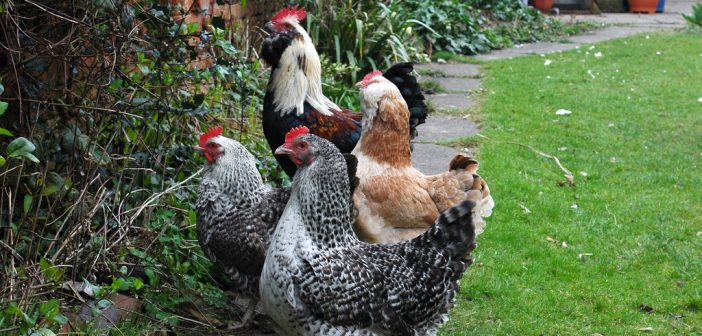(Featured image credit: steve p2008, used under CC BY 2.0)
The Centre for Animals and Social Justice has been contacted by several members of the public asking for advice about voting in the referendum on the 23rd June 2016, on whether the United Kingdom should leave or remain part of the European Union. The Charity Commission has issued guidance stating that charities must be very careful about commentary on the EU referendum and ensure any activity relates to their charitable objectives.
The CASJ is formally neutral on this issue and we are not campaigning on the referendum. However, approximately 80% of Britain’s animal welfare legislation is based on EU rules. So, as a charity dedicated to advancing animal protection, it is necessary for us, with our particular expertise in the impact of political structures on animal welfare, to provide information and analysis regarding the possible effects of the referendum. We hope the following is helpful for you in deciding how to vote on 23rd June. Remember, animals can’t vote – so it is totally down to you to represent their vital interests. If you have any questions or comments, please post them at the end of the article.
How might the outcome of the UK referendum on EU membership affect animal welfare?
There are more than thirty European Union laws covering most areas of animal harm that affect about a billion animals per year in the UK alone. EU law deals with areas of animal harm connected with commerce and trade across the EU. As such, it covers farm animals, as those animals and their products are traded across the EU, as well as laboratory experimentation due to the key role of research generally in the marketing of chemicals and other pharmaceuticals.
Similarly, laws relating to the labeling of products according to their animal welfare impacts originate in the EU. Most laws relating to the treatment of companion animals are not EU-related, as whether a guardian ill-treats or neglects their animal is not a trade issue per se. However, EU law does govern the international trade in companion animals.
What are the pro-animal welfare arguments for leaving the EU?
The main animal welfare argument put forward for leaving the EU is the idea that the UK will have greater freedom – which it would then use – to set higher standards for animal welfare than allowed for by EU membership. Agriculture Minister George Eustice has argued that by leaving the EU, the UK Government could redirect existing EU grants to farmers (known as the Common Agricultural Policy – CAP) towards subsidising higher welfare systems in British farming and so stop them being undercut by foreign farms operating to weaker standards.
For example, Mr. Eustice claimed that pig farmers would be in a position to receive new subsidies to support the extra cost of raising their animals in better conditions that mean they don’t have to have their tails docked to prevent stress-related tail-biting. As a result, the products from those animals could be sold cheaply enough to compete with pork etc. raised in more intensive systems, thereby making higher welfare standards in the UK economically viable.
EU rules are also said to prevent the UK from banning the live export of farm animals or the importation of some products that are no longer produced in the UK for ethical animal welfare reasons, such as fur.
What about any animal welfare arguments for staying in?
Some commentators, such as the RSPCA, have pointed out that if the UK left the EU we would still find it difficult to ban live exports and fur products because of the need to:
- adhere to EU rules to be able to carry trading with the EU, and/or
- adhere to World Trade Organisation (WTO) rules
The EU ‘constitution’ or basic law contains a declaration that animals are sentient beings and that all EU and member state legislation must take into account animal welfare impacts. Although the implementation of this important principle is somewhat patchy, it is worth bearing in mind that the UK has no such overarching rule for animal welfare.
The UK used to be a European leader on animal welfare issues, banning the veal crate and sow stall in the 1990s, years before the rest of the EU. However, over the last decade or so UK governments have placed greater emphasis on deregulation and profit maximisation instead. Going further than EU minimum standards is now known as ‘gold-plating’ and the government is now explicitly opposed to this. Recent animal welfare initiatives in the EU have been led by other countries such as Germany, Denmark and the Netherlands, without UK involvement. In some instances the UK has lobbied against EU moves to improve animals’ welfare. An example of this is UK government opposition to a proposed ban on the importation of products from cloned farm animals.
Similarly, although the UK led the way in banning animal testing for cosmetics in 1998, by the late 2000s it was the EU that introduced a ban on the sale of animal-tested cosmetics. Meanwhile the UK government appears to be breaking EU rules on animal experimentation by ignoring required limits on pain and suffering. Therefore, in some respects, remaining in the EU may improve UK animal welfare standards, or prevent them getting worse.
Conclusion
There is an inherent element of uncertainty regarding the impact of Brexit for animal welfare. As the UK is ‘mid-table’ these days in terms of our place in the EU animal protection league table, it would probably not have a dramatic effect immediately, either way. But, as time passes, much will depend on the UK government’s appetite for listening to the public and valuing animal protection, versus promoting ‘free’ trade and deregulation.
Declaration of Interests: The CASJ does not receive any funding from the EU.
Responses below do not necessarily reflect the views of the CASJ.





